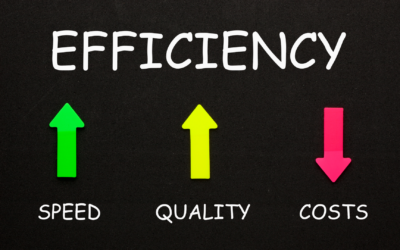In today’s dynamic work environment, mastering the art of time management is the key to achieving peak productivity. Whether you’re an individual aiming for personal efficiency or a business striving for optimal results, join me on a journey through tips, tools, and strategies to elevate your productivity game.
Understanding the Essence of Time Management
1. Prioritise Your Tasks
Start by identifying tasks based on urgency and importance. The Eisenhower Matrix is a valuable tool that categorises tasks into four quadrants, allowing you to prioritise and focus on what truly matters.
2. Set SMART Goals
Define Specific, Measurable, Achievable, Relevant, and Time-bound goals. This framework provides clarity and ensures that your objectives are well-defined, making it easier to create actionable plans.
Strategies for Effective Time Management
1. Time Blocking:
Allocate specific blocks of time to different tasks or categories of work. This technique helps in maintaining focus, preventing multitasking, and ensuring that each aspect of your work receives dedicated attention.
2. The Pomodoro Technique:
Break your work into intervals, traditionally 25 minutes in length, separated by short breaks. This method enhances concentration and keeps productivity high by leveraging the brain’s natural rhythm.
3. Batch Processing:
Group similar tasks together and tackle them during designated periods. For example, responding to emails, making phone calls, or handling administrative duties can be more efficiently managed in batches.
Embracing Productivity Tools
Task Management Apps:
Leverage task management applications like Todoist, Asana, or Trello to organise and prioritise your to-do lists. These tools offer collaboration features, ensuring seamless communication within teams.
Time Tracking Software:
Use time-tracking apps such as Toggl or RescueTime to gain insights into how you spend your time. This awareness allows for better decision-making and adjustments to improve efficiency.
Automation Tools:
Integrate automation tools like Zapier to streamline repetitive tasks, reducing manual workload and freeing up time for more strategic activities.
Navigating Distractions and Maximising Focus
Create a Dedicated Workspace:
Designate a specific area for work to signal your brain that it’s time to focus. Minimise distractions by keeping your workspace organised and free from non-work-related items.
Digital Detox:
Schedule periods of time where you disconnect from digital devices to recharge. This practice can significantly improve concentration and reduce the impact of constant notifications.
Adapting to the Modern Work Environment
Flexible Scheduling:
Embrace flexible work hours or remote work options. Giving individuals the autonomy to structure their workday around their peak productivity times can enhance overall efficiency.
Continuous Learning:
Stay updated on the latest productivity methodologies and tools. The modern work landscape is dynamic, and adapting to new strategies can give you a competitive edge.
Implementing a Personalised Approach
1. Regular Reflection:
Take time regularly to assess your time management strategies. Identify what works well and what can be improved, adjusting your approach accordingly.
2. Mindfulness Practices:
Incorporate mindfulness techniques, such as meditation or deep breathing exercises, into your routine. These practices can enhance focus, reduce stress, and contribute to overall well-being.
Effective time management is not a one-size-fits-all solution; it’s a dynamic process that requires continuous refinement.
By combining strategic planning, leveraging productivity tools, and adopting personalised approaches, individuals and businesses can navigate the challenges of the modern work environment and unlock their full potential.
Embrace the journey towards peak productivity, and watch as your efficiency soars to new heights.




0 Comments